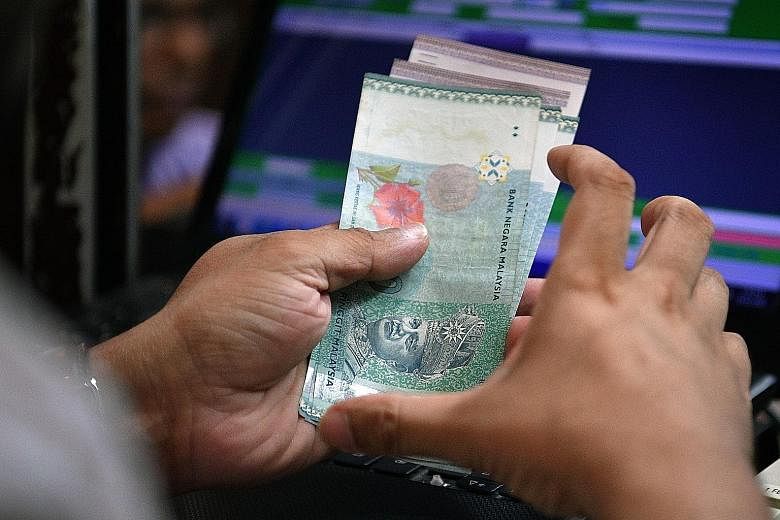HONG KONG/KUALA LUMPUR • Foreign banks in Malaysia are trying to work out how to comply with the central bank's clampdown on offshore ringgit trading, a move the broader market views as a form of capital control.
Form letters, sent this week from onshore banks to their offshore counterparts, asked compliance officers to sign commitments to cease trading the ringgit in non-deliverable forward (NDF) markets and then send the letters back to Bank Negara Malaysia.
"There is a massive back-and -forth going on between banks and Bank Negara Malaysia now," said a banker at a foreign bank in Malaysia that deals in foreign currency transactions. "This is a type of indirect capital control... I see a flood of people exiting Malaysia."
The ringgit fell nearly 1 per cent yesterday to a fresh 11-month low of 4.385 against the US dollar.
The offshore spreads in NDF markets widened, while bond yields shot higher, with the 10-year benchmark yield trading 17 basis points higher at 4.22 per cent. It rose nearly 60 basis points in the last week.
Investors typically use the liquid NDF markets in Singapore and Hong Kong to exchange ringgit for US dollars because of the many restrictions in the domestic market.
Singapore and Hong Kong are ranked third and fourth, at US$517 billion (S$733 billion) and US$437 billion respectively, on the global daily average turnover of foreign exchange derivatives, according to the latest survey from the Bank of International Settlements.
While Malaysia allows foreigners relatively open access to its domestic bond and stock markets, it prohibits any offshore trading of its currency or related derivatives.
Some foreign banks said they were told their investments cannot be moved out of Malaysia if they do not sign the letter.
The head of trading at a Western bank in Hong Kong described the situation as "being in a state of limbo". "We have been told that we cannot repatriate our money and our investments stay in Malaysia if we don't sign," he said yesterday.
The bankers asked for anonymity owing to the sensitivity of the subject.
Foreign holdings account for 40 per cent of the total outstanding bond market in Malaysia, one of the largest foreign ownerships in Asia.
Foreigners have been fleeing the Malaysian market in a global bond rout following Mr Donald Trump's election as United States president last week, which sent the dollar soaring and has hit emerging market currencies particularly hard.
Bank Negara Malaysia has asked financial institutions to provide a detailed plan if they need to make ringgit transactions onshore and to seek help from Malaysian financial institutions for any foreign exchange transaction needs.
It warned on Wednesday that it could act against lenders who do not comply with the measures.
"We can take (punitive action) as they will be breaching the Foreign Exchange Administration," assistant governor Adnan Zaylani told reporters.
"We can even take criminal or administrative action (against them)," he was quoted as saying by state news agency Bernama.
Bankers, however, say the central bank has no oversight over trades outside its jurisdiction.
Foreign investors pulled RM8.4 billion (S$2.7 billion) out of government bonds in September, when Malaysian markets tumbled on a political crisis swirling around Prime Minister Najib Razak.
Last month, however, there were inflows of RM2.39 billion into government bonds, and foreign reserves rose to US$97.8 billion by the end of the month.
REUTERS

